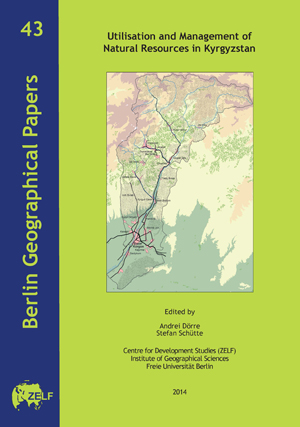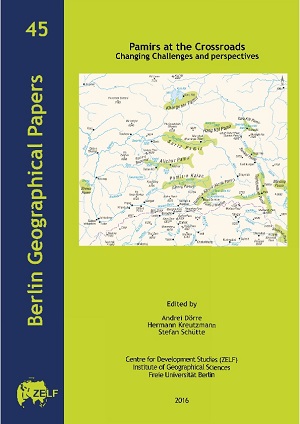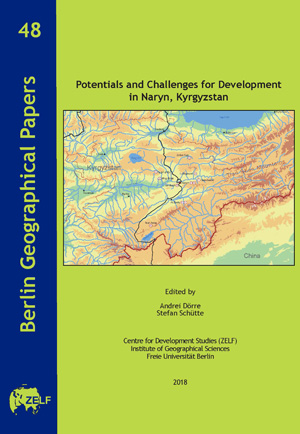Dörre, Andrei
Utilization and Management of Natural Resources in Kyrgyzstan
The training of students in the Department of Geography at the Centre for Development Studies (ZELF) of the Freie Universität Berlin includes the scientific preoccupation with theories of development, with social inequalities at multiple scales reaching from global to local arenas, and with questions of international development policies and practices aimed to ensure basic needs and sustainable development. (...) Following this approach, the project in 2013 was dedicated to specific issues of Kyrgyzstan’s development after 1991. The rural population of the post-socialist society depends to a great extent on the utilisation of natural resources, and the project focused primarily on the use and the management of natural resources that occur in the context of development efforts of governmental and non-governmental institutions.
Pamirs at the Crossroads: Changing challenges and perspectives
The meeting ‘Pamirs at the crossroads’ was convened in the framework of the Pamir research project sponsored by the Volkswagen Foundation as a final conference that was looking back at what was achieved by previous academic and scientific activities in better understanding the historical heritage for path-dependent development. A further aspect of the ‘meeting of minds’ was to develop a vision for desiderata, short-comings and urgent needs directed towards Pamir-focused development and research efforts. All persons who could follow the invitation to convene in Berlin were experts in their respective fields thus representing a wide range of different personal experiences, professional backgrounds and upbringings. It was attempted to create a cross-border perspective that was focusing on a remote region in all countries that claim to have a share in the Pamirs. By looking from the periphery on local developments, regional connections, national dependencies and global networks the web of multi-fold interrelationships and contrasting perceptions emerged and illustrated the complex challenges to which this meeting of minds could contribute only some glimpses. The two-day deliberations were structured in five themes, two keynotes, and one summarising statement.
Potentials and Challenges for Development in Naryn, Kyrgyzstan
After gaining independence in 1991, Kyrgyzstan experienced fundamental transformations of the political system, the economy and the sociocultural sphere. These transformations had various immediate impacts on the people’s daily life in terms of income generation, the provision with food and consumer goods, the management and use of locally available natural resources, as well as the availability of reliable social services, including health and education. Questions related to national belonging and religious identity represent another fundamental challenge of the post-Soviet era, requiring the search for new answers. Against this background, the student project focused on three thematic clusters including ten subprojects: I) ‘Economy: markets, trade, and agriculture’; II) ‘Connections and relations: rural-urban nexuses’; and III) ‘Culture and society: religion and identity’. The studies were conducted in close cooperation with the Naryn State University named after S. Naamatov located in Naryn Town, the administrative centre of Naryn Oblast’. Ten groups of up to three Kyrgyz and German students addressed specific issues through case study approaches applied in selected rural and urban settings of the province. The scope of the individual subprojects encompassed issues like the car trade and public transport system in Naryn Town, the bazaar economy of the city, trade and value chains of milk and other animal products, the management and utilisation of pastures and irrigation water, challenges related to drinking water supply, small-scale gold mining, endogenous development potentials, and the representation of national identity in the study region. This report includes a selection of the manifold results gained by the Kyrgyz-German student group, and presents six case studies addressing diverse topics










